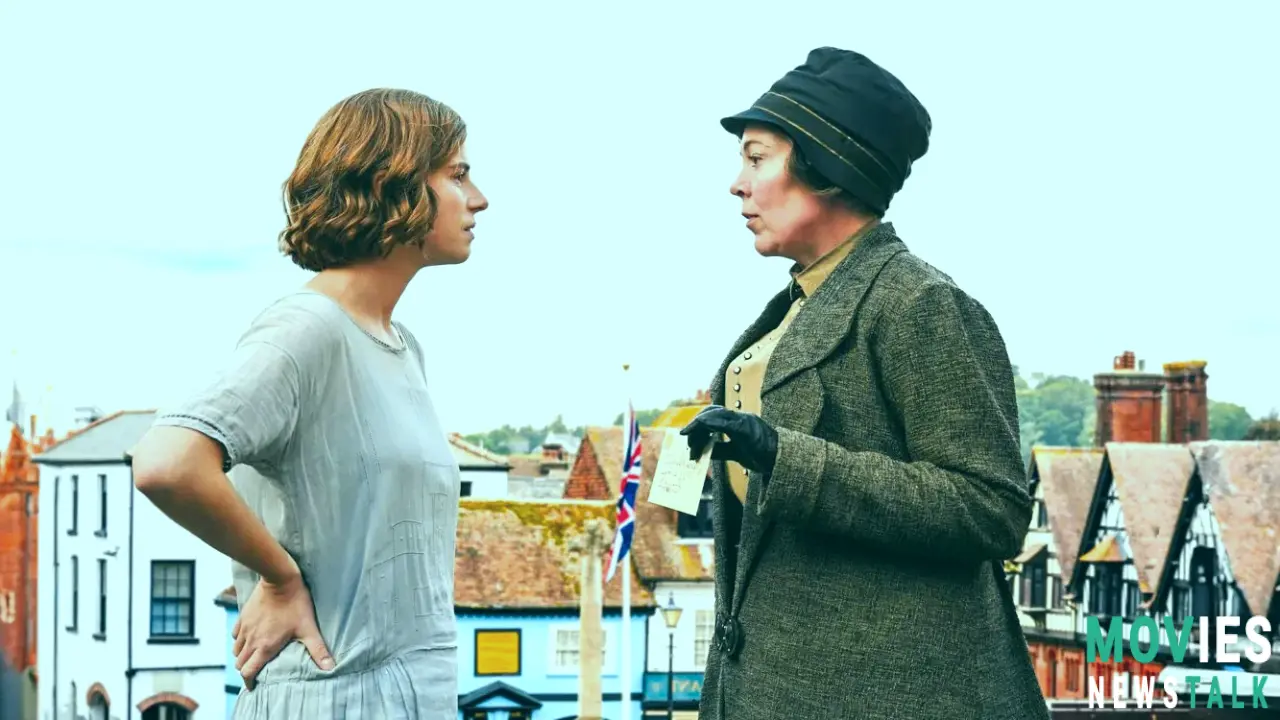Edith Swan and Rose Gooding's True Story Behind Wicked Little Letters
Based on the real story of the Littlehampton Letters, Olivia Colman and Jessie Buckley star in the dark comedy, Wicked Little Letters. This movie tells an amazing story of scandalous hate mail that engulfed a small 1920s community. The narrative revolves on Rose Gooding, an outspoken neighbor of committed Christian Edith Swan. Edith reports a string of nasty letters she gets to the police, immediately suspicious of Rose. But the actual meaning of the letters is far more surprising than anyone could have thought.
The Case of the Littlehampton Letters
Wicked Little Letters dramatizes the actual scandal sometimes known as the Littlehampton Letters or the Seaside Mystery. Colman's Edith started getting nasty letters, much to her strict father Edward's (Timothy Spall) dismay and her loving mother Victoria's (Gemma Jones). Rose, who was known for her direct speech, was quickly under suspicion because of her strained relationship with Edith. The movie shows the community's first incredulity about Rose's innocence and her experiences with accusations notwithstanding her strong denials. Respected historian Emily Cockayne has examined the case closely and written two books, Cheek by Jowl: A History of Neighbours and Penning Poison: A History of Anonymous Letters, so illuminating this fascinating tale.
Edith's Self-Inflicted Hate Mail: The shocking truth
The most shocking discovery in the movie corresponds with the real-life case: Edith was framing Rose by writing hate letters to herself. This startling turn reveals Edith's inner conflict with her father's dictatorial demeanor. Edward's rigorous rules on her behavior and speech caused her to develop repressed resentment. Writing the letters turned into her means of expression for her suppressed feelings and revolt against her father's power. Fascinatingly, Edith's critical attitude toward Rose's use of profanity sprang from her own secret jealousy. Rose's freedom of expression, a luxury Edith denied, drove her need to communicate herself via the letters' anonymity.
Accusation, Arrest, and Imprisonment of Rose Gooding
The Littlehampton Letters case comprised several court hearings and prison sentences. Before their relationship soured because Edith had reported Rose's parenting to the NSPCC, Edith and Rose had been friends. After the letters arrived, Rose became much under suspicion and was arrested on September 22, 1920. Rose was judged guilty of libel despite little proof and sentenced to fourteen days in prison. Rose kept being targeted even after she was released; Edith received more letters, and Rose once more accused. Rose was imprisoned for another twelve months, this time with hard labor, even after her lawyer offered Edith's handwritten recipes as proof of her similar handwriting to the letters.
Edith Swan's Arrest and Exposition
Edith's actions backfired and Rose's second imprisonment brought her down. Claiming they were discovered close to Rose's house, she kept penning nasty letters even sending some to the police. Still, her attempt to accuse Rose finally revealed her own guilt. The police became suspicious since they found parallels between the letters and Edith's own notes. Investigating the matter was police officer Gladys Moss, played by Anjana Vasan. She saw Edith leaving an obscene note at a neighbor's house, so strengthening the proof against her. After a 1921 trial, the judge first rejected the charges against Edith. The police sold Edith stamps marked with invisible ink so she could track her letters and compile more evidence. Her arrest in 1923 followed from this, and her guilty sentence for writing the evil letters came about. Edith was sentenced to twelve months in prison even though the judge found her actions dubious.
Afterglow: The Littlehampton Letter Legacy
Edith's detention cleared Rose's name at last. Records reveal Edith died in 1959 from living in a residential home during her later years. Renowned as the Littlehampton Letters, this remarkable case emphasizes the complexity of human behavior, the results of unbridled emotions, and the ability of manipulation. The narrative reminds us wonderfully of the continuing influence of actual events and the timeless power of truth.

